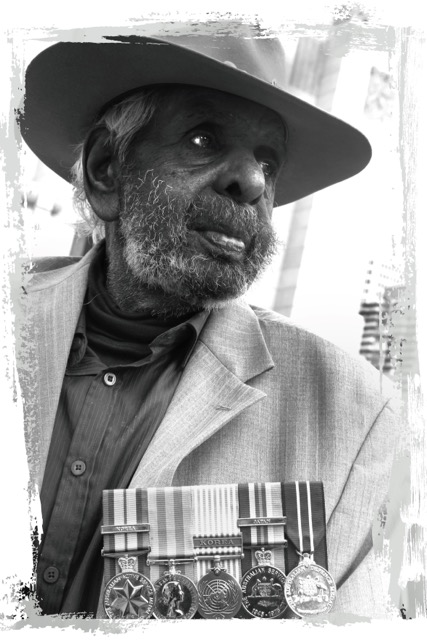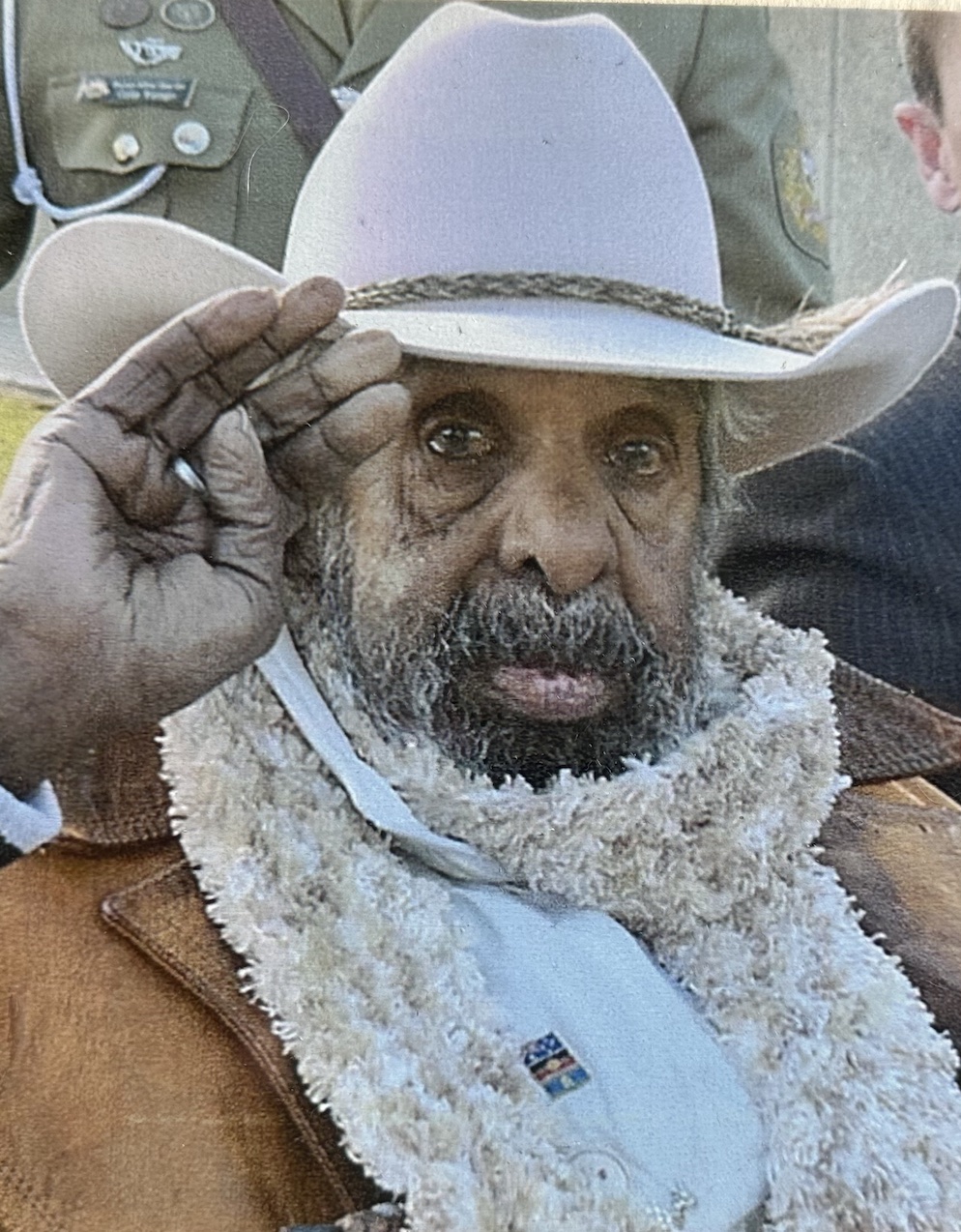Stephen Mullawalla Dodd – deceased
Arrernte (Central Australia)
Retired Private
1st Battalion, Royal Australian Regiment
Royal Australian Infantry Corps
and Royal Australian Army Ordnance Corps
Australian Army
Korean War Veteran
Medals and Awards
Australian Active Service Medal 1945-75 – Korea
Korea Medal
United Nations Service Medal (Korea)
Australian Service Medal 1945-75 – Japan
Australian Defence Medal
Jimmy Little Lifetime Achievement Award, 19th Deadly Awards (2013)
I am an Arrernte man from Central Australia. My mother passed away when I was born, so as a young boy, I was taken from my family and sent to the Colebrook Home for Aboriginal children at Quorn in South Australia. After leaving school, I worked out on cattle stations as a stockhand, breaking in horses, and as a rodeo rider. I used to sing and play the guitar and loved films and acting, so when they were looking for Aboriginal actors for films in 1946, I got work on the set of ‘The Overlanders.’ Chips Rafferty noticed me and offered me a small part in the film, my first role. This led to other roles in ‘Bitter Springs’ and ‘Kangaroo’.
At about this time, they were advertising for volunteers for the Korean War. I decided to put my acting career on hold and sign up for active service, enlisting in the Australian Army in April 1951. After basic training, I joined the 1st Battalion, Royal Australian Regiment as an infantry private. In April 1952, we sailed in a troopship bound for Japan, where we did more training before going over to Korea. We were sent up to defend a line of trenches called the Jamestown Line. We had to do a lot of patrolling and raids, especially at night, gathering information about the enemy and trying to capture prisoners. It was winter there and very, very cold. We had some heavy fighting against the Chinese, and I lost some good mates. At the end of the year, they pulled us back to our base at Camp Casey for a couple of months before we sailed back to Australia in March 1953. I’d signed up for six years, so when I returned, I transferred to the Royal Australian Army Ordnance Corps where I served until my discharge in 1957.
After the army, I resumed my acting career, and performed on the stage. I also returned to the rodeo, rough riding and working with Smoky Dawson. A few years later, I stood as an Independent candidate in the 1974 Federal Election in Gough Whitlam’s seat of Werriwa. I didn’t think I had much of a chance against Gough, but I wanted to see Aboriginal people getting better education and medical care and having our land rights restored. I acted in several television shows during the 1960s and ’70s, such as Whiplash, Homicide, and The Flying Doctors, though always in small, stereotyped roles. Later on, I was given parts in films that dealt with the issues we faced as Indigenous people, such as land rights and race relations. I was in a supporting role in ‘The Chant of Jimmie Blacksmith’ in 1978, and in 1987 had the lead role in ‘Ground Zero’ – a thriller based on claims that Aboriginal and Torres Strait Islanders were used as human guinea pigs in the British nuclear tests at Maralinga. By 1985, I had acted in 55 movies or television features.
In 2013 I was very honoured to receive my Lifetime Achievement Award at The Deadly Awards. Usually, this is only awarded to musicians. However, the organisers described me as ‘an actor that created a pathway for others across the entire arts and music sectors to follow, at a time when typecasting stereotypes and discrimination was the norm in Australia’s arts industry.’
I served my country at war and at home. I am proud of being seen now as a trailblazer in an industry in which it is very difficult for anyone to succeed, even more so if you are Aboriginal.

